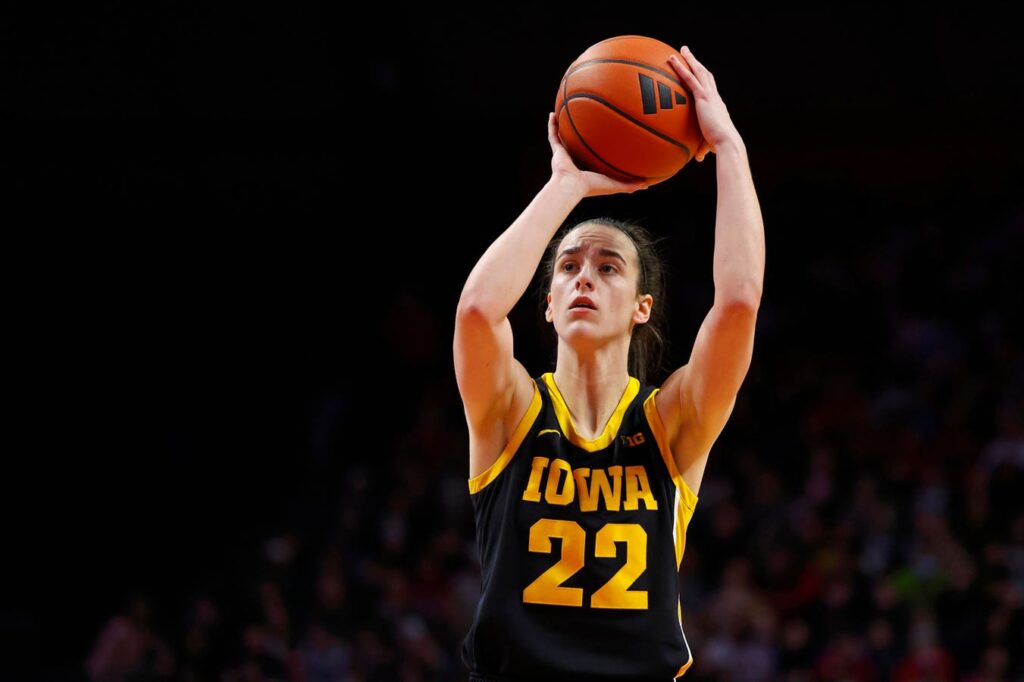With minutes left in the Iowa vs. West Virginia game, the outcome of the game was in doubt. For a moment, it looked like Iowa would run out of steam, Caitlin Clark would lose her cool, and the Hawkeyes would be eliminated from the tournament.
For the first time, I began to imagine the unimaginable. Caitlin Clark's run may be over. With a huge crowd watching and cheering, Clark's bid for her first national title came to an end, and with it I imagined that women's sports would receive a lot of attention this year. I suddenly realized that such an outcome would spell nightmares for both ESPN and women's sports fans.
The reason Clark's appearance in the final is so important is because women's sports rarely attract large live-viewing spectators to their competitions. Until Clark came along, the only consistent examples were at the Women's World Cup, where the U.S. plays for gold, or in some cases, where the U.S. team competes in more women than men, playing gymnastics or beach volleyball. It was an Olympic Games where sports such as
But this season Caitlin Clark became a national phenomenon. We watched her break her scoring records and were thrilled with her remarkable accomplishments and march to winning her first NCAA Championship. Everyone in sports marketing knows her name, and even NBA commissioner Adam Silver has mentioned her star appeal in her press conferences.
Not to take anything away from other women's college basketball stars, they are great athletes in their own right and there are many of them, but Clark stands apart from them and everything she does It has been widely reported nationwide. Unfortunately, if she and her Iowa Hawkeyes stumble along the way, it would be a huge setback for both ESPN and women's sports.
To truly understand the importance of this, let's look at the history of television ratings. Before last season, the highest-rated and most-watched women's national championship was the 2004 game between the University of Connecticut and Tennessee, with 5.6 million viewers watching the final game.
In 2022, the national semifinals averaged 2.7 million viewers. It was the most watched semi-final in the past 10 years. And the number of viewers for the national championship final was 4.85 million people, which is still far short of the all-time high.
However, by 2023, the Caitlin Clark effect has taken hold and the number has more than doubled. The Iowa vs. South Carolina game drew 5.6 million viewers. The game was the third most-watched women's college basketball game in ESPN history. And the 2023 National Championship match drew a record-breaking 9.9 million viewers. It won over ABC and became the most-watched women's college basketball game ever televised, by a wide margin, doubling its ratings in 2022.
This year, ESPN is hard at work hoping for a new record-breaking Women's Final Four. Expectations for Clark continued to rise all year as she broke the NCAA women's all-time scoring record and then passed the legendary Pete Maravich as the all-time leading scorer for either male or female.
Last night, she broke the NCAA single-season scoring record. All that remains now is the elusive NCAA Championship, and the entire country is following its journey. I would venture to say that if Clark makes it to the finals, the audience will be in the 15 million range. If she is eliminated before the Final Four, that number would likely drop back to the 2022 range, about a third of the crowd Clark would draw.
Fans of women's sports should unite and support Caitlin Clark. Because the more women's sports can attract large audiences, the more trust will be injected into women's sports and the more people will value female athletes. That's why the Caitlin Clark effect is so powerful, let's hope it lasts at least a few more weeks.
follow me twitter Or LinkedIn. check out my website.


